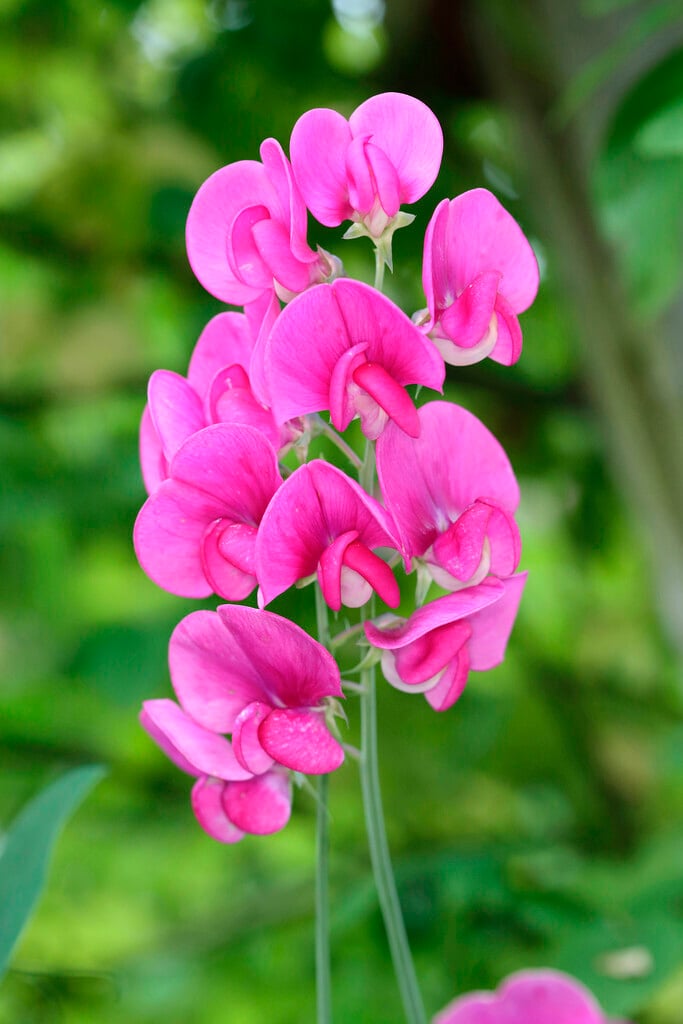Lathyrus latifolius

broad-leaved everlasting pea
A vigorous climbing herbaceous perennial to 2m, with winged stems and paired grey-green leaflets bearing tendrils. Flowers 2-3cm in width, vivid purplish-pink, in racemes of 5-11
Size
Ultimate height
1.5–2.5 metresTime to ultimate height
1–2 yearsUltimate spread
0.5–1 metresGrowing conditions
Moisture
Moist but well–drained, Well–drainedpH
Acid, Alkaline, NeutralColour & scent
| Stem | Flower | Foliage | Fruit | |
| Spring | Green Grey Silver | |||
|---|---|---|---|---|
| Summer | Pink | Green Grey Silver | ||
| Autumn | Pink | Green Grey Silver | ||
| Winter |
Position
- Full sun
- Partial shade
Aspect
South–facing or West–facing
Exposure
Exposed or ShelteredDrought resistance
Yes Hardiness
H7Botanical details
- Family
- Fabaceae
- Native to GB / Ireland
- No
- Foliage
- Deciduous
- Habit
- Climbing
- Potentially harmful
- Pods and seeds are not edible. Wear gloves and other protective equipment when handling. Pets: Pods and seeds are not edible. For further information and contact numbers regarding pets, see the HTA guide to potentially harmful plants
- Genus
Lathyrus can be annuals or herbaceous or evergreen perennials, mostly climbing, with pinnate leaves ending in a tendril, and showy pea-like flowers, fragrant in some species
- Name status
Correct
- Plant range
- C&S Europe & N Africa
How to grow
Cultivation
Can be grown as a climber or allowed to scramble over banks and slopes. It copes with sun or partial shade in fertile well-drained soil. See sweetpea cultivation for further information
Propagation
Propagate by seed
Suggested planting locations and garden types
- City and courtyard gardens
- Wildlife gardens
- Coastal
- Cottage and informal garden
- Wall side borders
- Banks and slopes
- Climber and wall shrubs
- Cut flowers
Pruning
Cut back to ground level in autumn
Pests
Diseases
May be susceptible to powdery mildews, Fusarium wilt and sweet pea viruses
Get involved
The Royal Horticultural Society is the UK’s leading gardening charity. We aim to enrich everyone’s life through plants, and make the UK a greener and more beautiful place.
